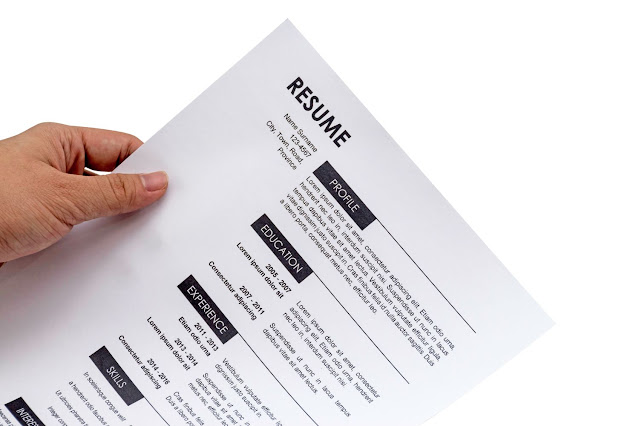How to write a good Cover Letter for job application?
The cover letter, is a short one page letter consisting of three or four paragraphs. It serves as an introduction to the resume. Cover letter writing is almost as vital as resume writing for a job applicant to learn. It should always be delivered with the resume, whether you are using email, traditional mail, faxing, or another sort of electronic submission.
As with resume writing, your objective here is to capture the hiring manager's attention. However, the methods and format are slightly different. Your resume should be one to two pages long and covers your entire professional history. Your cover letter will be a single page that serves as an introduction to your Curriculum vitae. Cover letter writing style should be direct, to the point, and able to instantly capture the reader's attention, to have the reader interested in reading the attached resume.
Tips to write a professional cover letter:
1- keep it Brief and Direct
When it comes to this style of writing, many people tend to say too much. A good cover letter is brief and straightforward, emphasizing two or three significant items from the resume. The ancient saying "tell them what you're going to tell them, then tell them what you told them" applies to both resume and cover letter writing.
2- Impressive writing style
According to several studies, the hiring manager only devotes around fifteen seconds to reviewing each resume and cover letter. With that in mind, your writing talents must be exceptional for him to consider your resume. Your resume writing abilities must be impressive in order to entice the reader to give you an interview. As a result, your interviewing abilities must be exceptional for the recruiting manager to offer you the position. This long, presumably beneficial sequence of events begins with solid cover letter writing skills and ends with work satisfaction and decent compensation.
3- Using Industry buzzwords
Assuming you are materials handling manager for a defence contractor looking for a new opportunity. Material Requirements Planning ( MRP) lean manufacturing, ISO 9000, and cost savings are buzzwords in your industry. Your writing efforts should use these buzz phrases to demonstrate your worth to your present and potential employers. Your Resume will go into further depth about how you achieved these objectives. The cover letter will just inform the recruiting manager that you met them. As an example, two paragraphs in the body of the letter state:
• Experience in quality assurance and control, MRP ISO 9000 and lean manufacturing
• Proven outcomes in considerable cost savings, inventory level reductions, and on-time supplier delivery for employers.
4- Use the bulleted format
Rather than a standard letter in paragraphs, use a bulleted style cover letter. The bulleted format is more visually appealing and is more likely to be read by the hiring manager or other individuals charged with going through resumes. This format will help you in getting your resume viewed by more people, resulting in more interviews and job opportunities.
If you intend to use the bulleted format, be sure that each bullet point provides a reason for the hiring manager to contact you. This explanation might be your work experience, degree, personality trait, or accomplishment.
Examples of bulleted points include:
• Over 25 years of experience in Human Resource Management.
• A strong work ethic. Lead by example.
• Master of Science in Education.
• Saved the last employer $50,000 in revenue by modernizing the accounting system.
• Increased sales by 20% last quarter.
This bulleted structure allows you to promote yourself, but not in an egotistical way because it is part of a resume package.
5- Use bold typeface
Another tip for improving the readability of your cover letter is to use bold-faced fonts to highlight important themes. The attention is therefore drawn to a bold typeface, which is a common method used by graphic designers in advertising content. Your Curriculum vitae and cover letter are marketing tools for you, much like a print media advertisement piece is for a business.
6- Use The "I will call you trick"
The next piece of advice pertains to the closing paragraph of the letter and will help you in your follow-up efforts. Getting past the gatekeeper is frequently the most difficult part of following up. The secretary or administrative assistant who filters calls for his or her boss has a vital job to do, but so do you, and making it through to the decision-maker will make you look good. If the decision maker is busy, the gatekeeper will try to stop you; after all, he has better things to do with his time than to speak with job applicants. So, before the "sincerely" and your name in the final paragraph of your letter, just mention, "I will phone you next week to check on a convenient time to talk to you in person." You have informed the hiring manager that you will be calling. He should be anticipating your call, logically. As a result, you may inform the gatekeeper, "Mr Manager is awaiting my call this week." This will boost your chances of being selected for the interview. This advice is a twist on strategies used by successful business-to-business salesmen, and it will work for you as well, resulting in more interviews and job offers.
The cover letter and resume are usually used in tandem and accomplish the same fundamental task in somewhat different ways. A candidate who lacks both of these is unlikely to get very far in his pursuit for a solid professional position.



